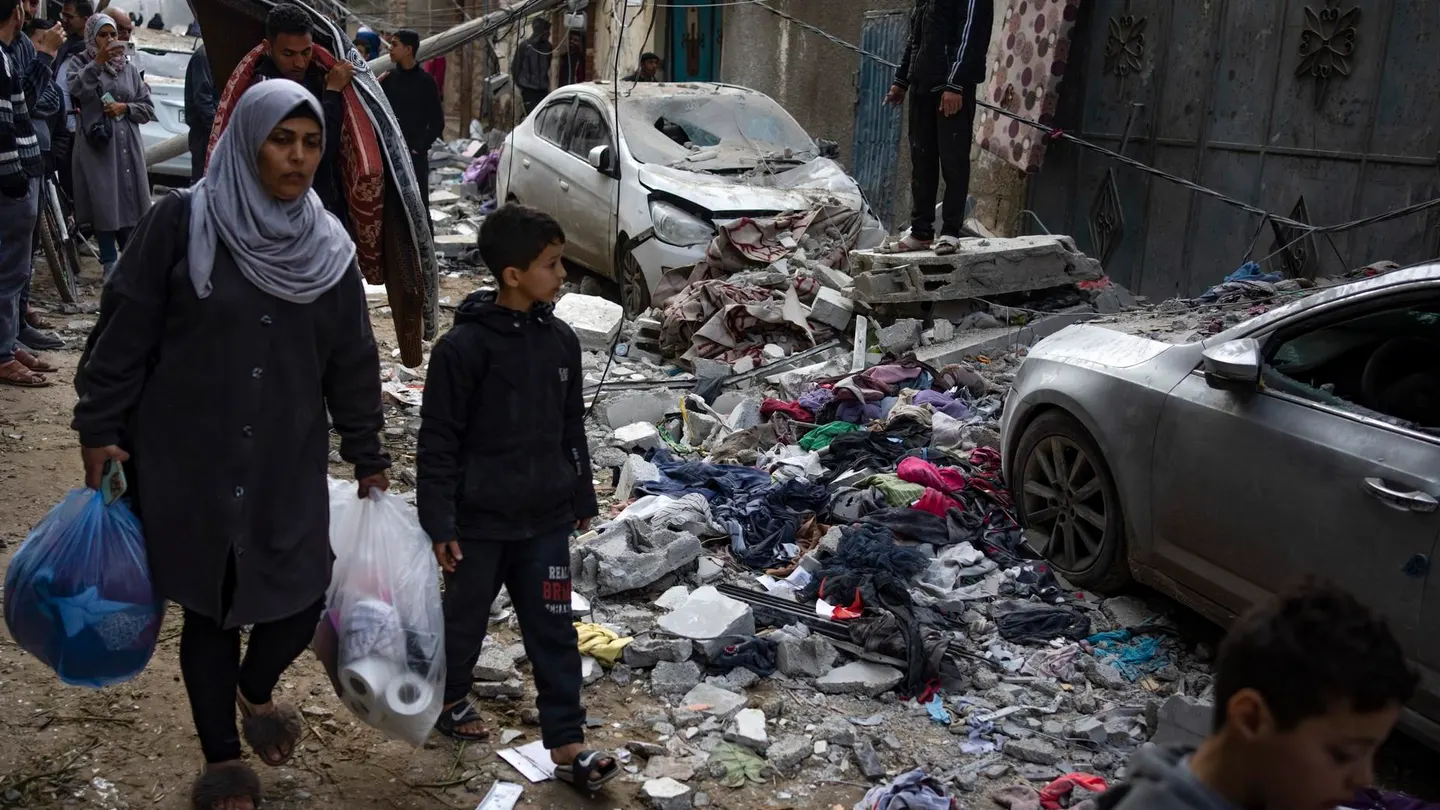- Home
- Billionaires
- Investing Newsletters
- 193CC 1000
- Article Layout 2
- Article Layout 3
- Article Layout 4
- Article Layout 5
- Article Layout 6
- Article Layout 7
- Article Layout 8
- Article Layout 9
- Article Layout 10
- Article Layout 11
- Article Layout 12
- Article Layout 13
- Article Layout 14
- Article Sidebar
- Post Format
- pages
- Archive Layouts
- Post Gallery
- Post Video Background
- Post Review
- Sponsored Post
- Leadership
- Business
- Money
- Small Business
- Innovation
- Shop
Recent Posts
Israeli PM Orders Rafah Evacuation Plan for 1.3 Million

In a bold and controversial move, Israeli Prime Minister Benjamin Netanyahu has issued orders to draft a comprehensive plan aimed at evacuating over 1.3 million displaced individuals from the city of Rafah, located in the southern Gaza Strip. This decision comes amidst heightened tensions in the region, exacerbated by recent Israeli airstrikes in Rafah, despite facing criticism from Western allies.
The city of Rafah has long been a focal point of conflict between Israeli forces and Palestinian residents. Its strategic location near the border with Egypt has made it a target for military operations and clashes between various factions. The recent escalation in violence has further exacerbated the humanitarian crisis in the region, prompting Prime Minister Netanyahu to take decisive action.
The evacuation plan, which is set to be implemented in the coming weeks, aims to relocate the displaced population to safer areas within Gaza and potentially to neighboring countries. The Israeli government has pledged to provide assistance and support to those affected by the evacuation, including access to housing, healthcare, and basic amenities.
However, the decision to evacuate Rafah has been met with mixed reactions both domestically and internationally. While some see it as a necessary step to ensure the safety and security of civilians in the region, others view it as a violation of Palestinian sovereignty and a further escalation of tensions.
Western allies, including the United States and European Union, have expressed concern over the Israeli airstrikes in Rafah and the subsequent evacuation plan. They have called for restraint and dialogue to resolve the underlying issues fueling the conflict in Gaza.
In response to criticism from Western powers, Prime Minister Netanyahu defended Israel’s actions, citing security concerns and the need to protect Israeli citizens from rocket attacks launched from Gaza. He emphasized the Israeli government’s commitment to ensuring the safety and well-being of all civilians, regardless of their nationality or ethnicity.
Meanwhile, Palestinian officials have condemned the evacuation plan as a form of ethnic cleansing and a blatant violation of international law. They argue that the displacement of over 1.3 million people from Rafah will only exacerbate the humanitarian crisis in Gaza and further destabilize the region.
The situation in Rafah remains tense, with Israeli forces maintaining a heavy presence in the area and ongoing clashes between Palestinian protesters and security forces. Humanitarian organizations have warned of the dire consequences of the escalating violence, urging all parties to prioritize the protection of civilians and respect for human rights.
As the international community grapples with the complexities of the Israeli-Palestinian conflict, efforts to find a peaceful and sustainable solution remain elusive. The evacuation plan for Rafah underscores the urgent need for dialogue and diplomacy to address the root causes of the conflict and pave the way for a just and lasting peace in the region.
In the midst of uncertainty and turmoil, the fate of over 1.3 million displaced individuals hangs in the balance, as they await the outcome of negotiations between Israeli and Palestinian leaders. Their lives and livelihoods depend on the ability of all parties to put aside their differences and work towards a future where peace and prosperity prevail. Only time will tell whether the evacuation of Rafah will bring about the stability and security that both Israelis and Palestinians desperately seek.
Recent Posts
Categories
- 193cc Digital Assets2
- 5G1
- Aerospace & Defense44
- AI32
- Arts3
- Banking & Insurance11
- Big Data3
- Billionaires224
- Boats & Planes1
- Business304
- Careers13
- Cars & Bikes66
- CEO Network1
- CFO Network17
- CHRO Network1
- CIO Network1
- Cloud10
- CMO Network18
- Commercial Real Estate7
- Consultant1
- Consumer Tech155
- CxO1
- Cybersecurity51
- Dining1
- Diversity, Equity & Inclusion4
- Education7
- Energy8
- Enterprise Tech29
- Events11
- Fintech1
- Food & Drink2
- Franchises1
- Freelance1
- Future Of Work2
- Games135
- GIG1
- Healthcare74
- Hollywood & Entertainment154
- Houses1
- Innovation37
- Investing2
- Investing Newsletters4
- Leadership65
- Lifestyle10
- Manufacturing1
- Markets20
- Media183
- Mobile phone1
- Money13
- Personal Finance2
- Policy542
- Real Estate1
- Research6
- Retail1
- Retirement1
- Small Business1
- SportsMoney22
- Style & Beauty1
- Success Income1
- Taxes2
- Travel10
- Uncategorized6
- Vices1
- Watches & Jewelry2
- world's billionaires194
Related Articles
Bomb Cyclone to Impact Pacific Northwest and Northern California
A powerful storm system, referred to as a “bomb cyclone,” is expected...
By 193cc Agency CouncilNovember 20, 2024‘Trump Dance’ Takes Over Sports Celebrations
In recent weeks, athletes from various sports, including the NFL, UFC, and...
By 193cc Agency CouncilNovember 20, 2024Mark Hamill Leads Celebrity Exodus from X to Bluesky
Mark Hamill, famed for his role as Luke Skywalker in the Star...
By 193cc Agency CouncilNovember 20, 2024Spotify Wrapped 2024: Data Collection Extended
Spotify has announced that the tracking period for its eagerly awaited Spotify...
By 193cc Agency CouncilOctober 31, 2024















Leave a comment